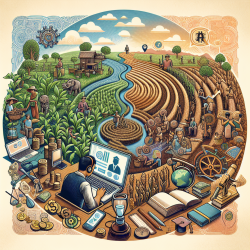Understanding the Transformation of Swidden Agriculture in Southeast Asia
Swidden agriculture, a traditional farming practice in Southeast Asia, has been undergoing significant transformations due to various political and economic factors. As practitioners in the field of education and therapy, understanding these changes can enhance your skills and broaden your perspective on global agricultural practices and their implications.
Key Factors Influencing Swidden Agriculture
The research article "Policies, Political-Economy, and Swidden in Southeast Asia" identifies six major trends affecting swidden agriculture:
- Classification of swiddeners as ethnic minorities within nation-states.
- Division of landscapes into forest and permanent agriculture.
- Expansion of forest departments and the rise of conservation efforts.
- Resettlement and its impact on traditional land-use practices.
- Privatization and commoditization of land and land-based production.
- Expansion of market infrastructure and promotion of industrial agriculture.
Implications for Practitioners
Understanding these factors can help practitioners in education and therapy develop a more nuanced view of the socio-economic and cultural dynamics affecting communities. This knowledge is crucial when working with diverse populations, especially in educational settings where students may come from backgrounds influenced by such agricultural transitions.
For example, recognizing the challenges faced by ethnic minorities in accessing education and resources due to historical land-use policies can inform more inclusive educational practices. Similarly, therapists can better support individuals experiencing the psychological impacts of displacement and cultural changes resulting from these agricultural shifts.
Encouraging Further Research
Practitioners are encouraged to delve deeper into the subject by exploring the original research article. This exploration can provide a more comprehensive understanding of the political and economic forces shaping agricultural practices in Southeast Asia and their broader implications.
To read the original research paper, please follow this link: Policies, Political-Economy, and Swidden in Southeast Asia.










